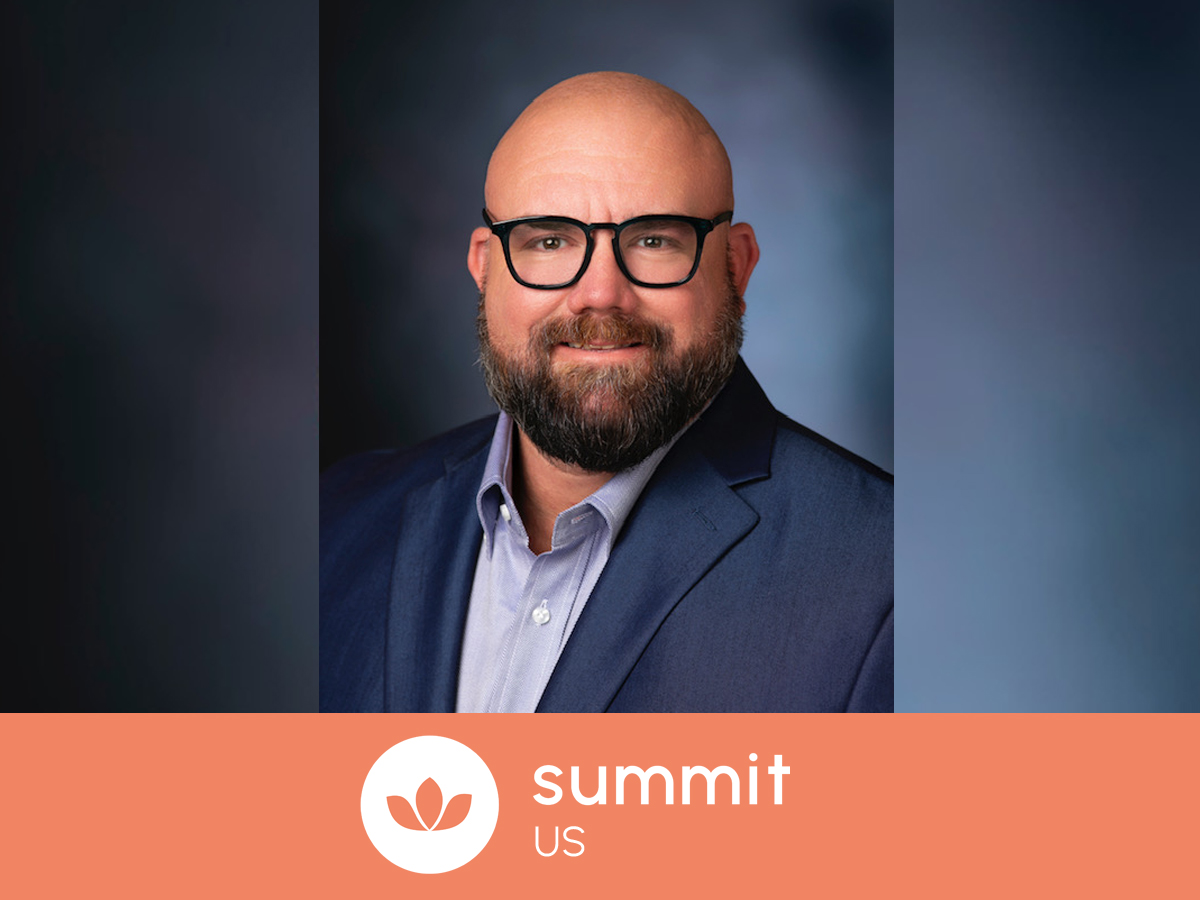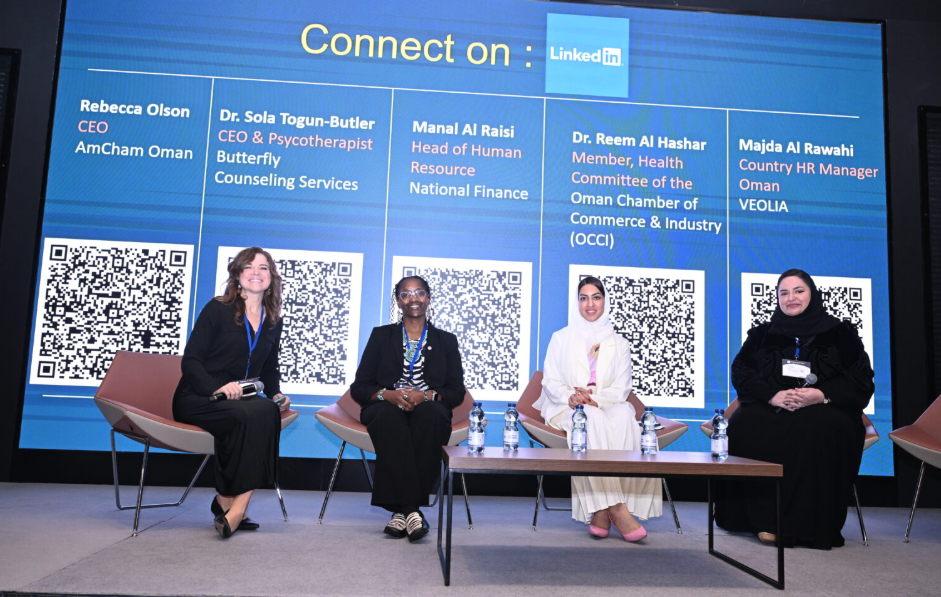
Amanda, a mental health ambassador, trauma-informed practitioner, and lived experience advocate who empowers individuals to navigate adversity and build well-being. Her role in L’Occitane’s mental health initiatives, coupled with her personal journey through trauma, fuels her uniquely empathetic understanding of workplace pressures and personal healing. With 20+ years of expertise in NLP, Amanda offers a multifaceted perspective marked by unparalleled empathy and authenticity. Her core message: Adversity doesn’t have to break you; it can make you.
We are delighted that Amanda will be speaking in Singapore as part of our Asia summit. We caught up with her to see how she’s feeling in the runup to the event.
Hi Amanda, we are thrilled that you will be speaking at the Wellbeing at Work Asia Summit in March. Our first and most important question is, how are you doing today?
Honestly? I feel like I’m living my best life. I love what I’m doing with mental health these days, it’s fantastic! Thanks for asking.
As a leader based in the region, what are the main challenges you are facing when it comes to employee wellbeing and mental health?
A lot of companies recognise the importance of employee wellbeing and mental health, and they often weave it into their strategic plans and roll out programs. But here’s the challenge: if these initiatives aren’t seen as directly linked to financial performance, they tend to lose momentum over time. Without a clear link between mental health efforts and profitability, commitment starts to fade. As a result, companies risk becoming organisations that ‘advocate’ for mental health in principle but fail to ‘implement’ meaningful, sustained action in practice.
What strategies have you seen developing over the past 6 months, both internally and externally, that are moving the dial on wellbeing in the workplace?
Externally, we’re seeing more emphasis on psychological safety policies, and right-to-disconnect policies are really helping employees create healthier work-life boundaries. Employee Assistance Programs (EAPs) are also stepping up, providing more meaningful support.
Internally, though, that’s where it gets exciting—L’Occitane has truly embraced mental health and DEI initiatives. We’ve implemented practical steps like mental health literacy training for leaders, lunch-and-learns to engage and educate the team, cultural training for new hires to promote inclusivity, and rest & reset rooms for moments of relaxation. We’ve also developed a global mental health roadmap to drive long-term change, and social connection remains a key focus with activities like Thirsty Thursday and Tuesday Tea’s, creating a supportive and engaged workplace culture.
Why is employee wellbeing so important to you personally?
Employee wellbeing is so important to me personally because people live full, complex lives outside of work—dealing with everything from family struggles, grief, and financial concerns to health challenges. And we don’t always know what someone’s going through. On top of that, people are juggling pressures within work too—co-worker dynamics, stress, overwork, imposter syndrome, and social burnout.
In today’s world, we’re constantly connected, and our lives have become more hectic because of our phones and laptops. We never truly get a break. Add to that the constant barrage of news, global issues, and fires to put out—it’s no wonder people feel overwhelmed. Everyone needs a moment of respite, and if companies want to get the best out of their people, they have to provide it. It benefits everyone in the long run, and companies can afford to be that space of support and rest.
What impact is AI having in your organization and how are you managing that?
AI is a vast and rapidly evolving landscape within companies, and many departments at L’Occitane are definitely making the most of AI, whether it’s for customer service automation, data analysis, supply chain optimisation, or marketing.
When it comes to wellbeing, however, we’re still keeping it human for now. While AI can offer tremendous support in terms of efficiency and scalability, wellbeing is deeply personal and requires empathy, emotional intelligence, and genuine human connection—things that AI can’t replace. We believe that fostering a supportive, human-centric culture is key to promoting mental health.
We’re leveraging AI where it makes sense in operational tasks, but when it comes to creating safe spaces for employees, offering emotional support, and addressing mental health, we’re committed to keeping the human touch at the center. So, while we’re excited about the possibilities of AI, we’re not ready to let go of the authentic connections that make a real difference in employees’ wellbeing.
Other than AI, are there any challenges that you are seeing for the first time and how are you addressing them?
We are seeing some challenges for the first time, particularly around mental health struggles, both internally and externally. For example:
a) Difficult Customer Interactions: Staff are increasingly facing aggressive customers, including threats and incidents related to mental health and health issues. The issue here is that in retail settings, there are very few safeguards for handling aggressive customers. Even with security in place, the protection they provide is often limited, leaving employees vulnerable.
b) Internal Sensitivities: Internally, we’re seeing employees become distressed by even minor social interactions—like a colleague not saying hello. Research indicates that 15-20% of the population experiences Sensory Processing Sensitivity (SPS), or is a Highly Sensitive Person (HSP), making them more emotionally reactive and overwhelmed by sensory input. The constant bombardment of information from social media, combined with social pressures, economic uncertainty, and personal challenges, can exacerbate these sensitivities and increase anxiety. Studies have shown that social media can particularly negatively affect self-esteem, especially in younger generations.
To address these issues, we are focusing on mental health training, resilience-building, de-escalation techniques, and peer support programs, while ensuring easy access to Employee Assistance Programs (EAPs). By doing this, we are working on creating a culture where it’s ok to speak up and say “I’m not ok” without fear of judgement.
What areas do you think employers should be focused on over the next 12 months?
We’ve heard all the buzzwords—work-life balance, resilience, burnout, boundaries, psychological safety, social and emotional wellbeing, and “see something, say something.” The education piece has been done to death.
What employers need to focus on now is implementation. It’s time to move from awareness to action—embedding wellbeing into KPIs, policies, and everyday operations. A clear, actionable roadmap with measurable goals, accountability checklists, leadership buy-in, and even incentives like bonuses for hitting wellbeing targets will drive real change. It’s no longer enough to talk the talk; it’s time to walk the walk and drive real change through consistent, measurable efforts.
Do you feel that investment in employee wellbeing in the region is increasing or decreasing and is that a direct reflection on HR leaders’ increasing ability to demonstrate effective returns of their strategies to leadership?
Investment in employee wellbeing in Australia is on the rise, largely because HR leaders are proving its business impact. Wellbeing has moved from a ‘nice-to-have’ to a strategic priority, with companies recognising its direct link to productivity, retention, and overall performance.
HR leaders are using data-driven insights—tracking absenteeism, engagement, and turnover—to make a strong case for sustained investment. At the same time, external pressures, like psychosocial hazard regulations and increased mental health awareness, are pushing leadership to act.
But awareness and education are no longer the issue—the real challenge now is execution. It’s not just about understanding the value of wellbeing; it’s about integrating it into workplace culture through policies, measurable goals, and leadership accountability. Short-term economic pressures may exist, but the long-term trend is clear: investment in wellbeing is growing, and HR leaders are making it impossible to ignore.
How has your organisation been leading the way?
L’Occitane is leading the way in prioritising mental health, making significant strides by integrating it with our DEI initiatives. We’ve created a Global Mental Health Project Lead role to implement a comprehensive Mental Health Roadmap across the organisation, alongside the Mental Health Ambassador role in Australia, which underscores our commitment to making mental health a core part of our company culture.
We’re embedding mental health awareness into everything we do, ensuring it’s spoken about openly and support is easily accessible. Currently, we’re focusing on mental health literacy for our leaders, equipping them with tools to manage their own wellbeing and support their teams effectively. Managers are being trained to spot early signs of stress and burnout and engage in meaningful conversations with their teams.
DEI is more than a buzzword at L’Occitane. We’ve rolled out inclusivity and cultural sensitivity training for new hires, and embedded DEI in our recruitment process. We’re committed to hiring diverse talent and supporting their growth through initiatives like mentoring and employee resource groups.
We’ve also reimagined our office spaces to foster relaxation and mental clarity, with dedicated ‘rest & reset’ rooms that provide employees a quiet place to recharge. These spaces help improve both productivity and wellbeing.
Our team-building activities, like Burger & Bowls, offer opportunities for social connection, helping to reduce isolation, build stronger relationships, and increase engagement.
L’Occitane champions work-life integration with flexible work arrangements and clear ‘right-to-disconnect’ policies, allowing employees to balance their personal and professional lives without guilt.
Wellbeing is a continuous focus at L’Occitane. We regularly gather employee feedback on our initiatives, using it to innovate and improve. We’re planning to expand our mental health resources and introduce new ways to support employee wellness.
Amanda will be speaking in Singapore at the Wellbeing at Work Summit Asia. Further details on the Summit can be found here.



